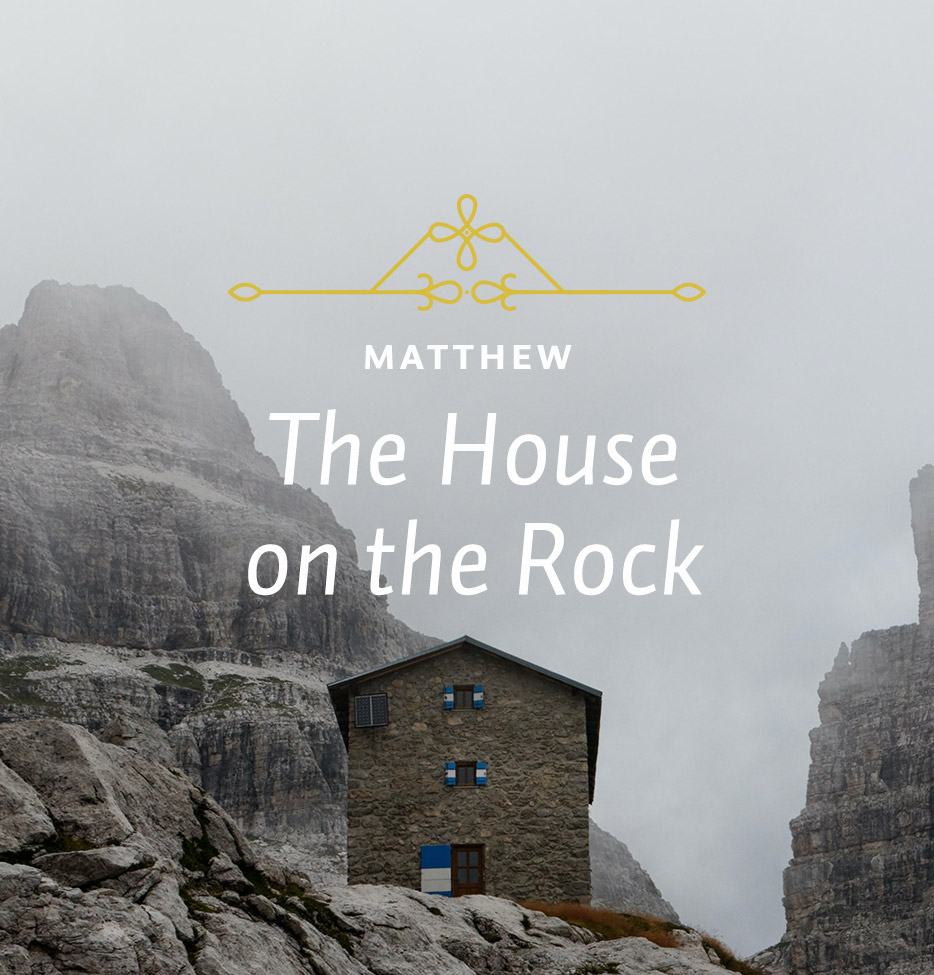We come to the very last words of the Sermon on the Mount, the section in which Jesus Christ pictures the difference between those who hear His teachings and do them and those who hear His teachings and do not do them as the difference between a wise man who builds his house upon a rock, and a foolish man who builds his house upon sand. It is a picture that all people know. And it is one that most of us have sung about, in one hymn or another, since the time we were children.
Basically, it is a matter of foundations. Let me illustrate the importance of having a firm foundation for a building by means of this contrast. Toward the end of one summer, after having spent several months in Europe, I had the opportunity of returning to the United States on a student ship that sailed to New York from Rotterdam. I thought at the time of boarding that it was probably the smallest ship allowed on the ocean. And perhaps I was right. For it was certainly slow and very light in high seas. We boarded it one night, and it started off. Then, the next morning after we had gotten up we were sure we could still see Holland. By the end of the third or fourth day we were just passing Land’s End, England. All in all the crossing took nine days.
The difficulty was not just the length of time, however. It was also the weather. This was the hurricane season, and a number of storms that were passing had managed to churn up the ocean as far out as a point midway between England and Newfoundland. We therefore arrived in New York harbor after days of tossing about like a cork in a bathtub, and our first real calm was the calm we felt as we entered the harbor. We sailed into New York in the middle of the night, but because I didn’t want to miss seeing the harbor, I spent most of the night on the deck, watching the ship slowly maneuver into place in the channel, drop anchor, and stop. Then I saw the gray spires of lower Manhattan emerge like mountains in the constantly brightening light of the dawn. I thought how firm they appeared and what a contrast they were to the way I had been spending the last nine days.
Here is a second, but contrasting, impression about foundations. One summer several years later, my family and I visited Venice. We arrived about 12:30 at night. We took a motor launch and cruised along peacefully under the warm Italian sky down the Grand Canal to the Piazza San Marco, where our hotel was located. I remember having quite a different impression that evening from the one I had as I had sailed into New York harbor. Venice is much like New York. They are both great ports, as well as financial centers. But I knew, even as I gazed at the great Venetian buildings, that Venice is slowly sinking into the waters of the Adriatic Sea. The difference between Venice and New York is that Venice has no foundations.
That is just a bit whimsical, perhaps. But I tell it to illustrate in vivid, contemporary terms what Jesus is talking about in the Sermon on the Mount. Jesus says that a man builds life the way designers build cities. And His point is that the factor that determines what will remain and what will not remain is the foundation. “Therefore,” He says, “whosoever heareth these sayings of mine, and doeth them, I will liken him unto a wise man, who built his house upon a rock. And the rains descended, and floods came, and the winds blew and beat upon that house, and it fell not; for it was founded upon a rock. And every one that heareth these sayings of mine and doeth them not, shall be likened unto a foolish man who built his house upon the sand. And the rains descended, and the floods came, and the winds beat upon that house, and it fell; and great was the fall of it” (Matt. 7:24-27).






